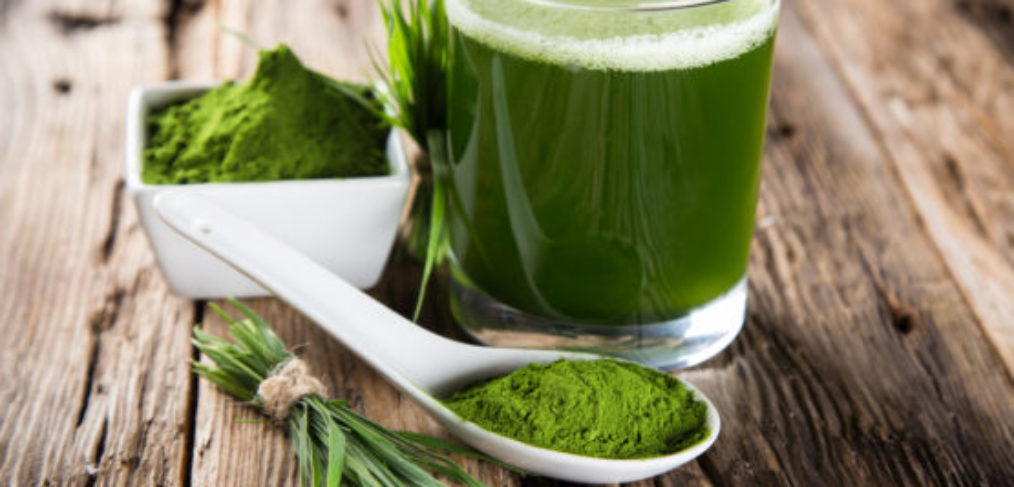Do We Really Need Green Powders?

With the increased awareness and interest in keeping ourselves as healthy as possible, we are seeing a lot more mention about eating properly in order to keep our immune systems working optimally.
And rightly so!
But if you’re eating a nutrient-dense, plant-based diet full of leafy greens, abundant natural fats, small portions of properly sourced proteins like wild fish and grass fed meats, do you really need to add in superfoods, extra vitamin supplements and green powders?
Let’s explore.
Superfoods
Real foods that tend to be mostly plant-based but also some fish and dairy, these are the foods that are thought to be nutritionally dense and thus good for one’s health (1).
Popular superfoods include blueberries, kale, wild, deep-water fish, and freshly brewed green tea.
However, because the term “superfood” is not scientific, it can mislead consumers, prompting them to eat one kind of food over another.
The easiest way to decipher whether a food item in this category is a must-have versus a marketing attempt is to ask yourself one question: is it in package or are you buying it as it grew?
A bunch of organic broccoli, or a pint of farm-fresh blueberries are a big thumbs-up, while an energy bar touting the accolades of all the superfoods it contains may not be.
Vitamin Supplementation
This is a big one.
Some research (2) shows that Vitamin C, B6 and E supplementation may help to boost your immune system, while other studies suggest Vitamin D is one of the most important immune system-strengthening nutrients that can reduce the risk of colds and flu (3).
Still other experts recommend we need to be supplementing with mushrooms that will ‘act as Turbo-Shots for our immune systems’ (4) and we can now hop into many an IV Drip Bar for an immune boosting treatment (5).
But where do we draw the line?
Some treatments may be costly, unproven and in some cases, risky.
Best bet?
Err on the side of caution; the recommendation to consume a high-quality fish oil, a food-based multivitamin and possibly a probiotic is likely to be a safe bet for most who are have a sound eating foundation in place, combined with good sleep hygiene, exercise and rest.
Want an extra ‘boost’? Check in with your functional medicine doctor and see if she or he recommends a blood or saliva panel to determine what you personally may be low in and should therefore consider supplementing with.
The cost of the visit may even prove to be far less than what you may be spending on supplements you may not even need.
GREEN POWDERS
Greens powders are supplements made from greens, vegetables, seaweed, probiotics, digestive enzymes and more (6). They may claim to boost immunity and reduce chronic disease risk, but results may vary based on ingredients.
Green powder supplements can vary greatly from one brand to another; lab tests have found that some greens powders contain lead and other heavy metals, which, in high amounts, these contaminants can lower energy levels and cause organ damage (7).
If you’re confident in the sourcing of the product you’re interested in, even then, they should only be used in addition to a diet that’s still rich in whole plant foods, including fruits and vegetables; consuming them does not give the ‘green light’ to not eat your vegetables (8).
The body reacts quite differently to whole foods than it does to isolated vitamins, whether we’re talking about green powders, protein powders or any manufactured item to any degree.
In other words, even the cleanest, purest green powder is not going to provide the degree of nutrient density that you’ll get from a balanced, nutrient-rich diet consisting of real, unadulterated food.
An easy takeaway to keep in mind: a supplement is just that – an add on, or an extra.
With the state of food as it is and the cost of buying food that we can trust is actually good for us for a variety of reasons, it may make the most sense to shift more dollars to what is in effect a real food foundation and then, if there’s extra left over and we determine we actually need it, then, perhaps opt to add it into the mix.
(1) https://www.livescience.com/34693-superfoods.html
(2) https://health.clevelandclinic.org/3-vitamins-best-boosting-immunity/
(3) https://www.ncbi.nlm.nih.gov/pmc/articles/PMC3166406/
(4) https://www.healthline.com/health/food-nutrition/best-medicinal-mushrooms-to-try
(5) https://www.nbcnews.com/better/pop-culture/feeling-sick-ish-i-went-drip-bar-immunity-boost-here-ncna843406
(6) https://www.healthline.com/nutrition/super-greens
(7) https://www.webmd.com/diet/greens-powder-are-there-health-benefits#1
(8) https://health.usnews.com/wellness/food/articles/2017-11-17/what-are-greens-powders-and-do-you-need-them





